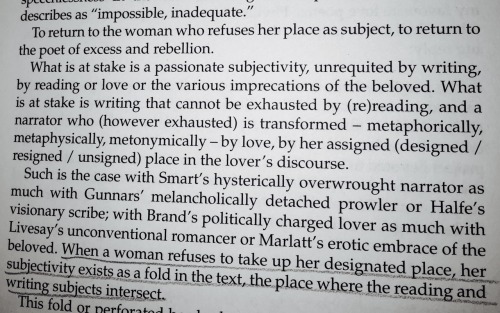#subjectivity
Guattari is fascinated by the non-human aspect of subjectivity. Singularity is not individuality, although it is about being singular. It operates at a pre-personal, pre-individual level. In The Three Ecologies he compares our interior life or ‘interiority’ to a crossroads where several components of subjectification meet to make up who we think we are. The resingularization of subjectiviry, the liberation of singularities that are repressed by a dominant and dominating mass-media subjectivity, has nothing to do with individuals.
Ian Pindar and Paul Sutton, from the translators’ introduction to The Three Ecologies by Felix Guattari
Wittgenstein’s main language argument
I think,most people would agree with Wittgenstein’s famous argument about language being limited or not a reliable tool to communicate about some big philosophical problems like “What is virtue?”,“What is knowledge? etc. But i am having a hard time grasping the silliness of this argument. If Wittgenstein denies that language cannot be used to talk about abtract concepts in a meaningful way because its impossible to know the true definition of these concepts and feelings we experience, he is essentially trying to enforce virtue when he is not sure if he is even talking about the same thing.I think exact sensation in two different people is impossible for example I may look at a blue colour of different shade and intensity than you based on our visual capacity and neural network.Similarly,It is impossible to paint the exact picture of some abstract concept of something in someones mind through language due to this subjectivity of sensation, but it is the thing we evolved from start and still evolving.He also put in question all the philosophers that lived before him. Wittgenstein claims for a better communication tool which can be used to talk about these concepts but he forgot to think that it takes millions and billions of years to evolve a structure of thoughts to communicate an idea.Language is still evolving, maybe one day it will become that ideal structure for Wittgenstein then. But for now we should not cry and go on rant about this natural gift from evolution.
The ancient Chinese parable of a farmer as told by Alan Watts
Once upon a time there was a Chinese farmer whose horse ran away. That evening, all of his neighbors came around to commiserate. They said, “We are so sorry to hear your horse has run away. This is most unfortunate.” The farmer said, “Maybe.”
The next day the horse came back bringing seven wild horses with it, and in the evening everybody came back and said, “Oh, isn’t that lucky. What a great turn of events. You now have eight horses!” The farmer again said, “Maybe.”
The following day his son tried to break one of the horses, and while riding it, he was thrown and broke his leg. The neighbors then said, “Oh dear, that’s too bad,” and the farmer responded, “Maybe.”
The next day the conscription officers came around to conscript people into the army, and they rejected his son because he had a broken leg. Again all the neighbors came around and said, “Isn’t that great!” Again, he said, “Maybe.”
The whole process of nature is an integrated process of immense complexity, and it’s really impossible to tell whether anything that happens in it is good or bad — because you never know what will be the consequence of the misfortune; or, you never know what will be the consequences of good fortune.

